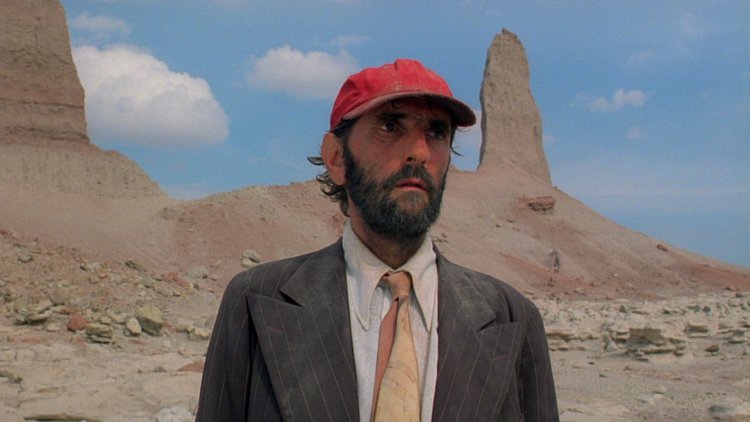'Paris, Texas' (1984)
"Paris, Texas," directed by Wim Wenders and released in 1984, is a critically acclaimed drama that explores themes of identity, connection, and the search for belonging. Set against the backdrop of the American Southwest, the film follows Travis Henderson, a disheveled man who mysteriously reemerges after years of absence. With its striking cinematography, haunting score, and poignant performances, "Paris, Texas" has established itself as a cinematic masterpiece that delves deep into the complexities of the human experience.

Plot and Setting
The film centers around Travis Henderson, portrayed by Harry Dean Stanton, who wanders through the desert and eventually reunites with his estranged family. As the story unfolds, Travis' past is gradually revealed, shedding light on the events that led to his disappearance and his subsequent search for redemption and reconciliation. The vast and desolate landscapes of the American Southwest serve as a powerful backdrop, mirroring the emotional journey of the characters.
Character Study and Performances
Harry Dean Stanton delivers a tour de force performance as Travis Henderson, a man haunted by his past and wrestling with a deep sense of loss and guilt. Stanton's portrayal captures the character's vulnerability, stoicism, and eventual emotional breakthrough, earning him widespread acclaim. The supporting cast, including Nastassja Kinski as Travis' wife Jane and Hunter Carson as his young son Hunter, also deliver nuanced performances that add depth and authenticity to the narrative.
Visual Poetry and Cinematography
"Paris, Texas" is a visual feast, with its stunning cinematography capturing the essence of the American Southwest. Robby Müller's masterful camera work showcases the stark beauty of the desert landscapes, contrasting them with the neon-lit streets of Los Angeles. The film's use of wide shots and long takes allows the audience to immerse themselves in the vastness of the surroundings, enhancing the themes of isolation and longing.
Themes of Identity and Connection
At its core, "Paris, Texas" is a profound exploration of identity and the yearning for connection. Travis' journey represents a quest for self-discovery and a desire to reconcile with his past. The film delves into themes of alienation, loneliness, and the complexities of human relationships. It poses questions about the nature of identity and the profound impact that our past has on shaping who we are.
Music and Soundtrack
The film's haunting soundtrack, composed by Ry Cooder, enhances the emotional depth of "Paris, Texas." The melancholic slide guitar melodies and atmospheric tones perfectly complement the visuals, creating an ethereal and introspective atmosphere. The music becomes a character in itself, underscoring the emotional nuances and heightening the film's poignancy.
Impact and Legacy
"Paris, Texas" has had a lasting impact on the world of cinema. Its combination of stunning visuals, evocative storytelling, and memorable performances has solidified its place as a classic in independent filmmaking. The film's exploration of existential themes and its ability to evoke deep emotions have resonated with audiences and influenced subsequent generations of filmmakers.
Also Check All the myths and misconceptions about honey
Conclusion
"Paris, Texas" is a mesmerizing and introspective film that delves into the depths of the human soul. Wim Wenders' masterful direction, combined with Harry Dean Stanton's unforgettable performance, creates a haunting and thought-provoking cinematic experience. Through its exploration of identity, connection, and the longing for redemption, the film invites viewers to reflect on their own journeys and the profound impact that past experiences have on shaping their lives. "Paris, Texas" stands as a testament to the power of cinema to delve into the complexities of the human condition and to touch the hearts of audiences for generations to come.




























